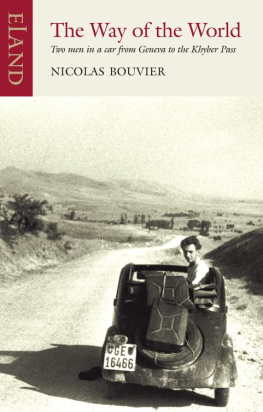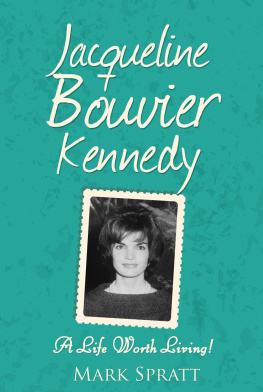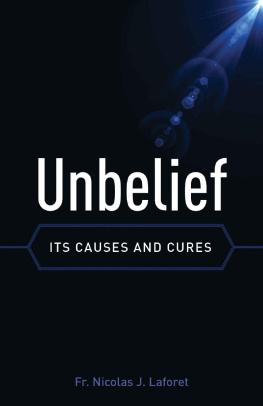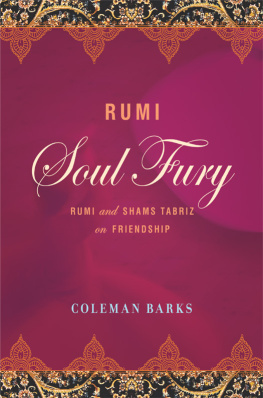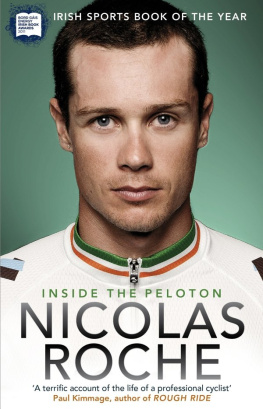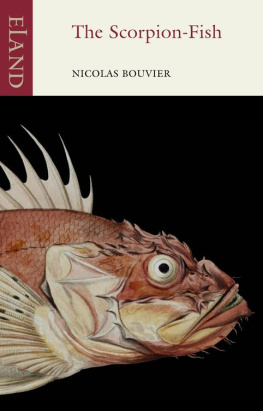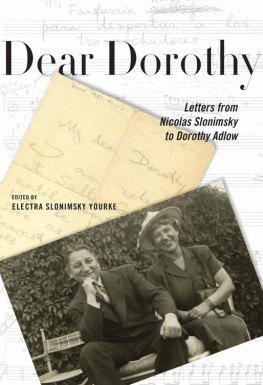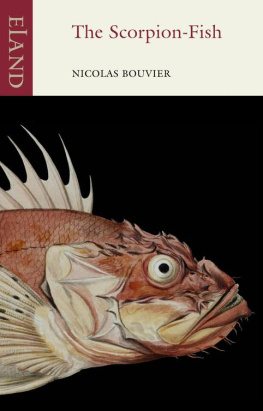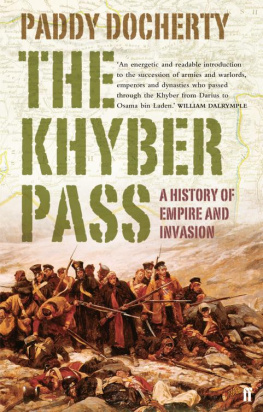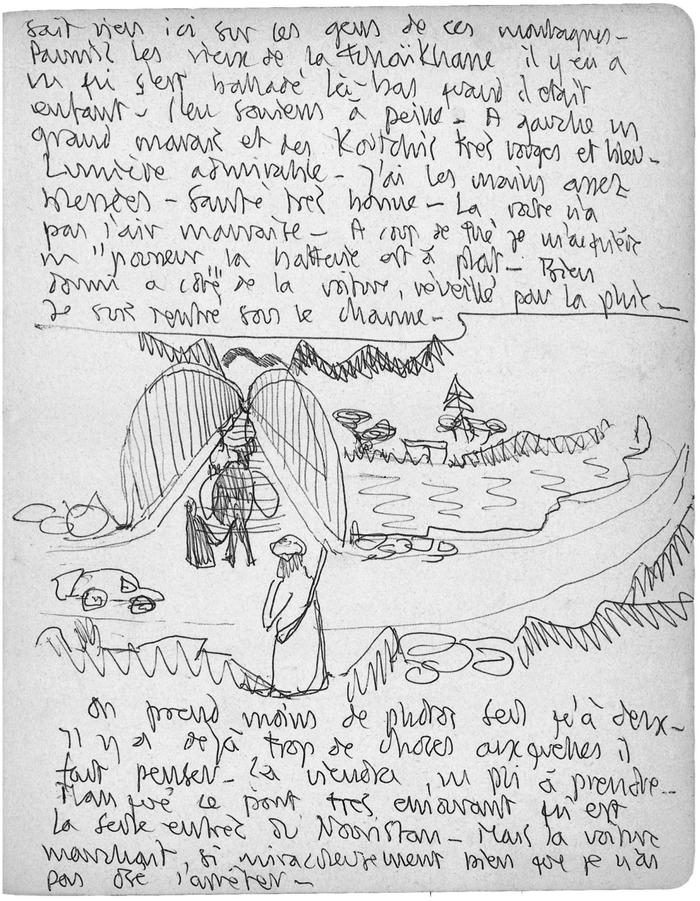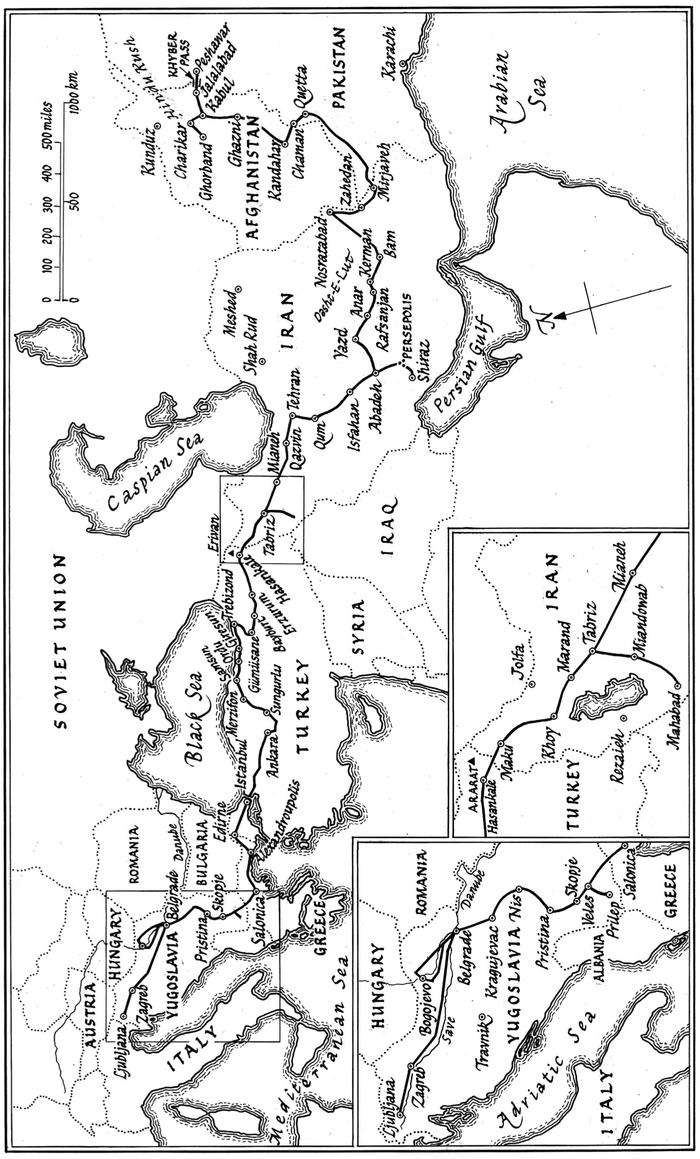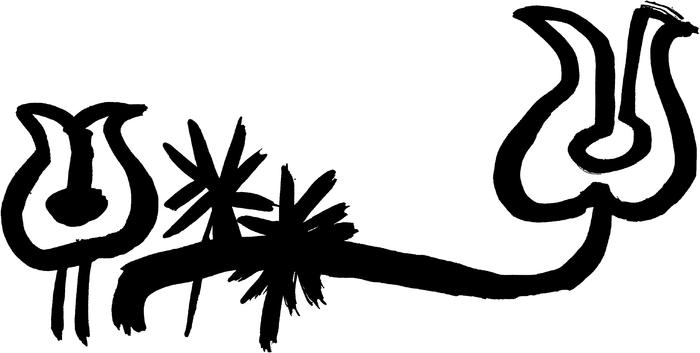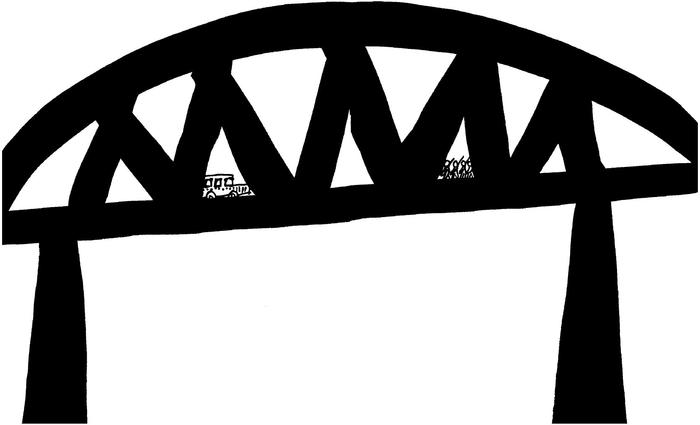I shall be gone and live, or stay and die.
Shakespeare
Geneva, June 1953 Khyber Pass, December 1954
I HAD LEFT Geneva three days previously, and was making my way at a leisurely pace when I found a letter from Thierry at the poste restante, Zagreb.
Travnik, Bosnia, July 4th
This morning, brilliant sunshine, heat; I went up to the hills to draw. Marguerites, young wheat, serene shadows. Coming down, met a peasant on a pony. He got down and rolled me a cigarette, which we smoked squatting beside the path. With my smattering of Serbian I gathered that he was taking bread home, that he had spent about a thousand dinars on finding a girl with sturdy arms and big breasts, that he had five children and three cows, and that one should watch out for thunder, which had killed seven people the year before.
Then I went to the market-place. It was market day: sacks made out of entire goatskins, sickles that made one want to scythe acres of wheat, fox skins, paprikas, whistles, shoes, cheeses, tin trinkets, sieves of woven rushes, still green, which mustachioed men were just finishing, and reigning over all this a collection of one-legged, one-armed, wheezing men hobbling on crutches.
This evening, had a drink under the acacias while listening to the gypsies, who surpassed themselves. On the way back, bought a large slice of almond paste, pink and greasy. Is this the East or what?
I looked at the map. Travnik was a little town encircled by mountains in the depths of Bosnia. He was planning to go back to Belgrade, where the Association of Serbian Painters (ULUS) had invited him to exhibit. I was to join him there towards the end of July, with the luggage and the old Fiat we had fixed up, and wed go on to Turkey, Iran, India, perhaps even further We had two years in front of us, and money for four months. The programme was vague; the main thing was just to get going.
From ten to thirteen I had stretched out on the rug, silently contemplating the atlas, and that makes one want to travel. I had dreamed of regions such as the Banat, the Caspian, Kashmir, of their music, of the glances one might meet there, of the ideas that lay in waiting When desire resists commonsenses first objections, we look for reasons and find that theyre no use. We really dont know what to call this inner compulsion. Something grows, and loses its moorings, so that the day comes when, none too sure of ourselves, we nevertheless leave for good.
Travelling outgrows its motives. It soon proves sufficient in itself. You think you are making a trip, but soon it is making you or unmaking you.
On the back of the envelope he had scribbled: My accordion, my accordion, my accordion!
Hed made a good start; me too. I was in a caf on the outskirts of Zagreb, in no hurry, a flute of white wine in front of me. I watched as night fell, a factory emptied, a funeral procession passed by bare-footed , black-shawled, carrying brass crosses. Two jays were squabbling in the branches of a lime tree. Covered in dust, a half-eaten pepper in my hand, I listened to the day joyfully crumbling away like a cliff inside me. I stretched out, gulping litres of air. I thought of a cats proverbial nine lives: it seemed to me that I must be starting on my second.
Belgrade
M IDNIGHT WAS CHIMING when I stopped the car in front of the Caf Majestic. A friendly silence reigned over the still warm street. Through the lacy curtains I saw Thierry sitting inside. He had drawn a life-size pumpkin on the tablecloth, and was killing time by filling in tiny pips. Obviously the Travnik barber hadnt seen him very often. With his sideburns over his ears and his little blue eyes he looked like a jolly, if worn-out, young shark.
I gazed through the window for a long time before joining him at the table. We clinked glasses. I was happy to see this old project taking shape, and he to have a companion. He had found it hard to tear himself away. At first he had walked too far, without being in training, and weariness made him gloomy. Trudging along, sweating, through a countryside populated by incomprehensible peasants, he had questioned the whole enterprise. It seemed absurd, idiotically romantic. In Slovenia, an innkeeper who noticed his defeated look and his top-heavy rucksack hadnt helped matters by saying kindly, Ich bin nicht verrckt, Meister, ich bleibe zu Hause.
The month hed spent drawing in Bosnia, however, had restored his balance. When he arrived in Belgrade, his drawings under his arm, the painters of ULUS had welcomed him as a brother and unearthed an empty studio in the suburbs, where we could both stay.
We got into the car, as it was quite a way from the city. After crossing the Sava Bridge, you had to follow two ruts along the river bank as far as a patch of land overgrown with thistles, where several dilapidated houses stood. Thierry made me pull up in front of the largest. In silence, we lugged the bags up a dark staircase. The smell of turpentine and dust caught in our throats. The heat was stifling. A powerful humming came through the half-open doors and echoed round the landing. In the middle of an enormous, bare room, Thierry a methodical tramp had settled down on a bit of swept floor, well away from the broken tiles. A bedding-roll, his painting materials, a gas lamp and, leaning against a primus stove, sitting on a maple leaf, there was a melon and a goat cheese. It was frugal, but so natural that I felt it had been waiting for me for years.
I spread my sleeping bag on the floor and went to bed without undressing. The umbels of hemlock climbed right up to the casement, open to the summer sky. The stars were very bright.
Loafing around in a new world is the most absorbing occupation.
Between the tall arch of the Sava Bridge and the confluence with the Danube, the suburb rose in clouds of dust in the fiery summer. It owed its name Samichte (the fair) to the remains of an agricultural showground, turned into a concentration camp by the Nazis. For four years, Jews, resistance fighters and gypsies had died there in their hundreds. When peace returned, the municipality roughly restored these lugubrious follies for artists on state bursaries.

